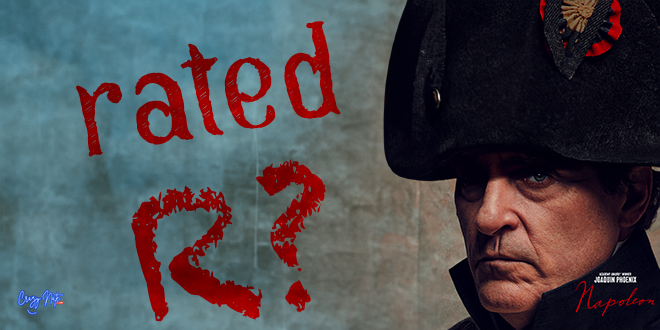Unveiling “Napoleon”: Exploring Its Rating, Plot, and Star-Studded Cast
“Napoleon” is a film that has captured the attention of cinephiles and history enthusiasts alike. With a title evoking images of grandeur and historical significance, many wonder about the movie’s rating, its plot, and the famous actors who bring the characters to life. In this article, we’ll delve into these questions, providing insights into the film’s rating, storyline, and the notable cast that makes “Napoleon” a cinematic experience worth exploring.
What is “Napoleon” Rated?
Napoleon, a cinematic offering from Apple Studios, bears the Motion Picture Association’s rating of R. This classification is attributed to the film’s portrayal of strong violence, accompanied by some grisly images, as well as the inclusion of sexual content and brief instances of language. The movie, with a running time of 158 minutes, unfolds within the constraints of this rating, promising an intense and immersive experience for viewers who are prepared for the thematic elements and content that warrant the R rating.
Understanding the Plot
Ridley Scott’s 2023 epic historical drama, chronicles the tumultuous life of the iconic French leader, Napoleon Bonaparte. Directed and produced by Ridley Scott and written by David Scarpa, the film stars Joaquin Phoenix as Napoleon and Vanessa Kirby as his wife, Joséphine.
The narrative unfolds against the backdrop of the French Revolution, beginning in 1793, as young army officer Napoleon witnesses the execution of Marie Antoinette. The plot follows Napoleon’s strategic prowess in military campaigns, including the Siege of Toulon and the Battle of the Pyramids, and his rise to power as he navigates the complex political landscape of post-revolutionary France.
The movie delves into Napoleon’s personal life, exploring his passionate but childless marriage to Joséphine. As Napoleon faces challenges in Egypt, he learns of Joséphine’s affair with a younger lover, prompting his return to France and eventual overthrow of the Directory in a coup.
The narrative weaves through key historical events, such as Napoleon’s coronation as Emperor of the French in 1804 and his military triumphs, notably the Battle of Austerlitz. The film also depicts Napoleon’s complicated relationships, including his divorce from Joséphine due to her infertility, subsequent marriage to Marie Louise of Austria, and the invasion of Russia in 1812.
The plot takes a dramatic turn with Napoleon’s exile to Elba in 1814 and his audacious return to power in 1815. The Battle of Waterloo becomes a pivotal moment, showcasing Napoleon’s strategic brilliance but ultimately leading to his defeat and exile to Saint Helena. The film concludes with Napoleon’s death in 1821, as he reflects on his life, history, and the enduring beckoning of Joséphine.
The epilogue notes the staggering human cost of the Coalition Wars, emphasizing the profound impact of Napoleon’s legacy. “Napoleon” paints a vivid and complex portrait of a historical figure, exploring his triumphs, failures, and the enduring allure that captivates audiences even centuries later. The film’s meticulous attention to historical detail, complemented by Joaquin Phoenix’s compelling performance, makes it a captivating cinematic journey through the turbulent life of one of history’s most influential leaders.
While the details of “Napoleon” films may vary, the 2002 miniseries provides a comprehensive exploration of Napoleon Bonaparte’s life and legacy. With a talented cast led by Christian Clavier, Isabella Rossellini, Gerard Depardieu, and John Malkovich, the series captures the grandeur and complexity of one of history’s most iconic figures. To discover more about the film’s rating and additional details, it is recommended to check the latest information from reliable movie databases or official sources. “Napoleon” stands as a cinematic journey through the pages of history, inviting viewers to witness the triumphs and tribulations of a man who left an indelible mark on the world.
Opinions on “Napoleon” are as varied as the historical events it portrays. Some argue that crucial moments in Napoleon’s life were overlooked, creating a sense of omission. On the other hand, many appreciate the film as a compelling interpretation, offering a vivid glimpse into what it might have been like to walk in Napoleon’s shoes. The debate surrounding the movie adds an intriguing layer to its reception, sparking discussions about historical accuracy and creative liberties. Share your perspective on the film by tweeting @ImCrazyNate—your opinion could find its way into an upcoming video! #NapoleonFilm #HistoricalDrama #CrazyNateReviews
Have you seen the movie Napoleon? If so what did you think of it? pic.twitter.com/uhZxyrQpfX
— Crazy Nate (@ImCrazyNate) December 30, 2023
BONUS EASTER EGG!
Adding an intriguing layer to the cinematic tapestry of “Napoleon,” the character portrayed by actor Abubakar Salim in multiple scenes is subtly credited as General Dumas. While the film doesn’t overtly delve into his story, this character alludes to the real-life historical figure, Thomas-Alexandre Dumas. Hailing from Haiti, General Dumas was a formidable military leader during the Napoleonic Wars and notably, the father of renowned writer Alexandre Dumas. Recognized as “The Black Devil” by contemporaries, General Dumas’ legacy as a brilliant tactician is a subtle yet fascinating Easter egg for keen-eyed viewers.
 Crazy Nate Share a smile!
Crazy Nate Share a smile!










